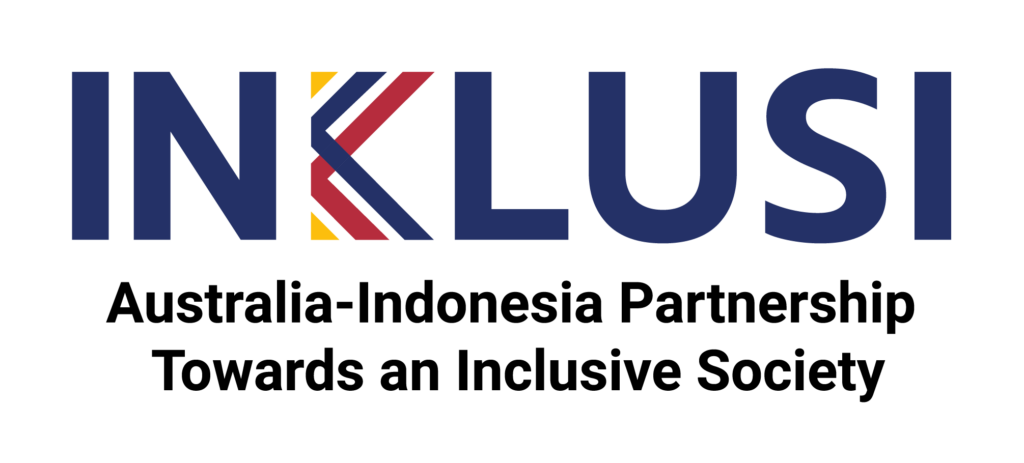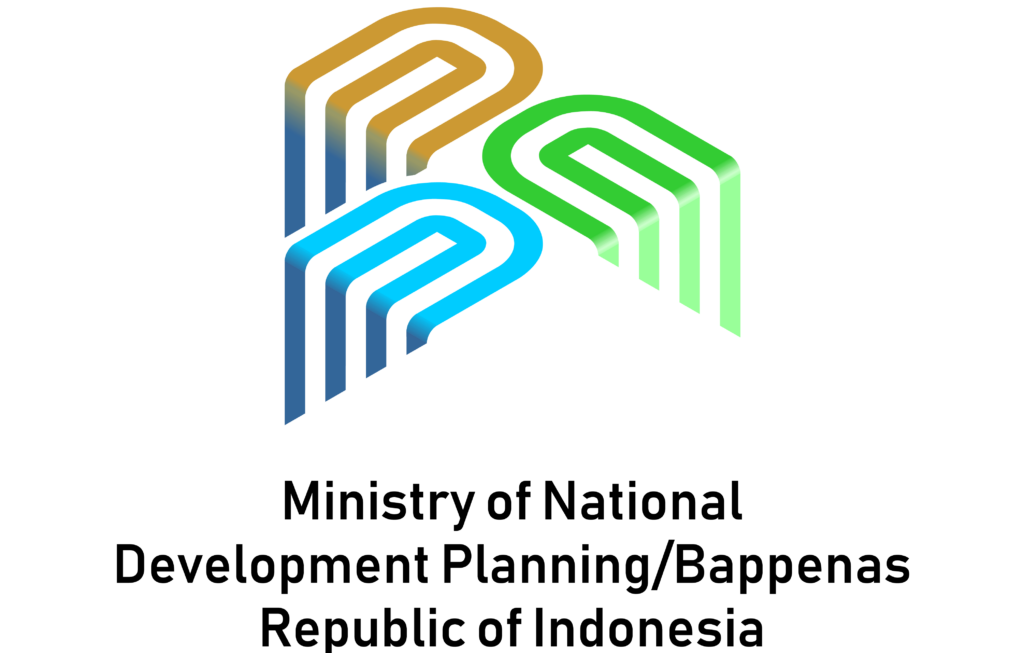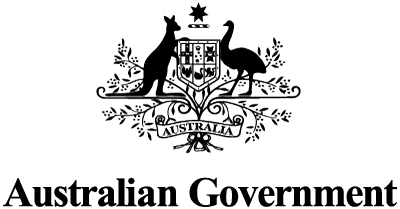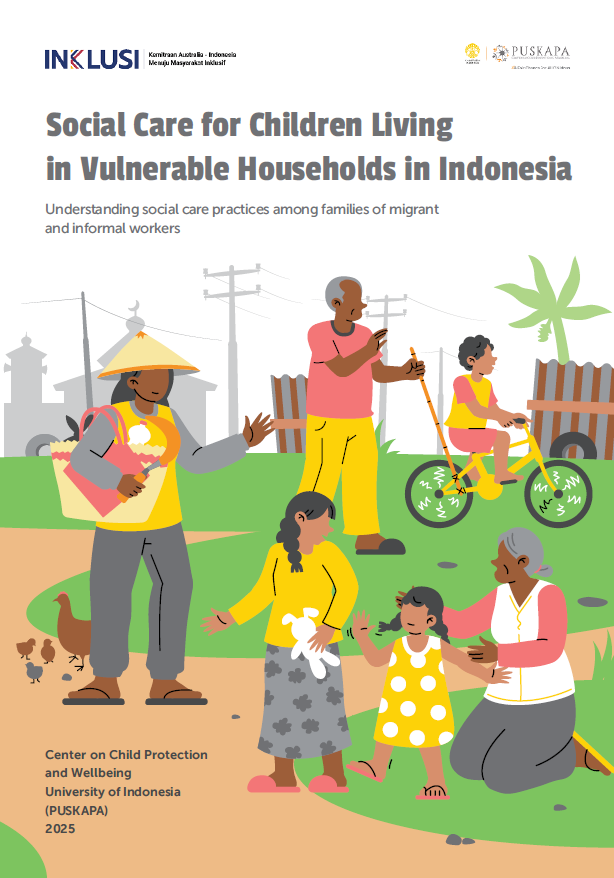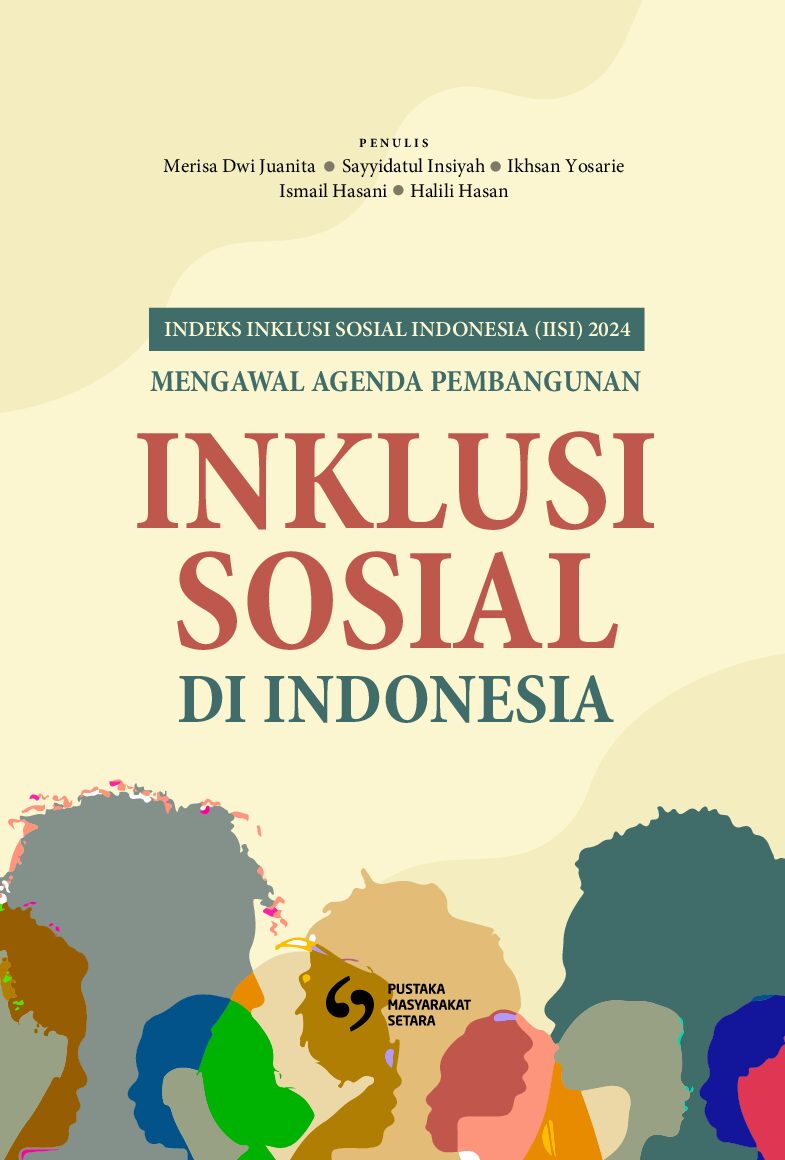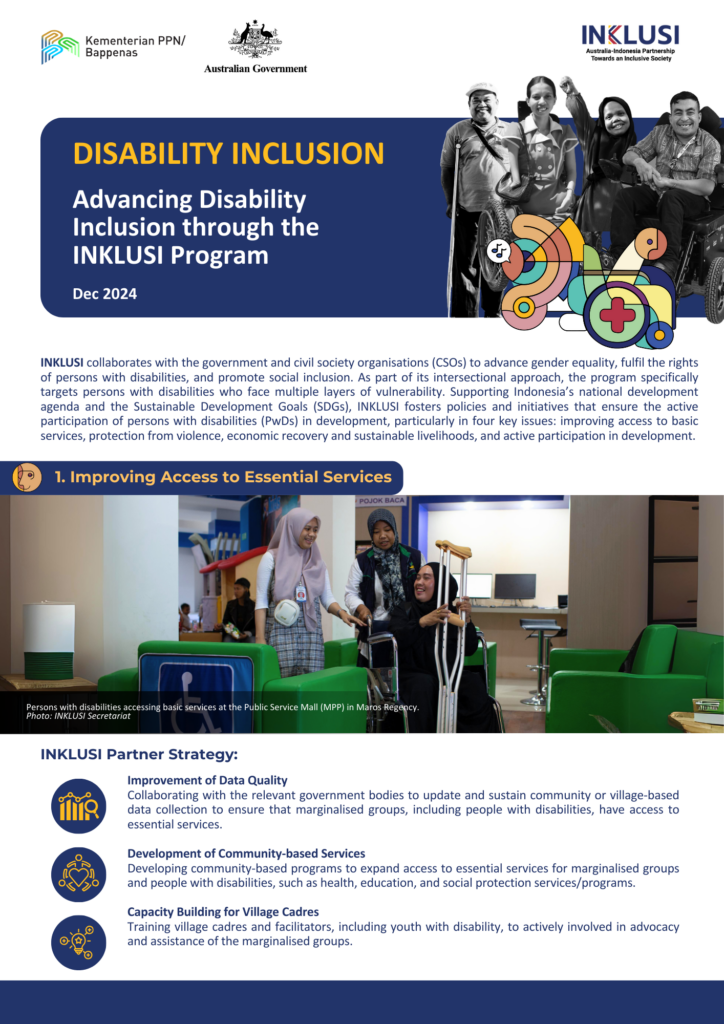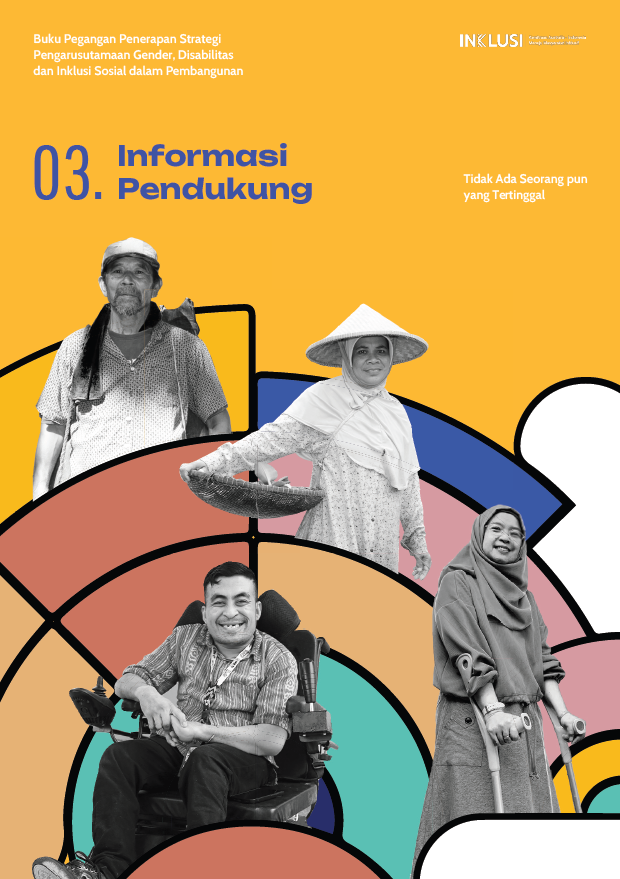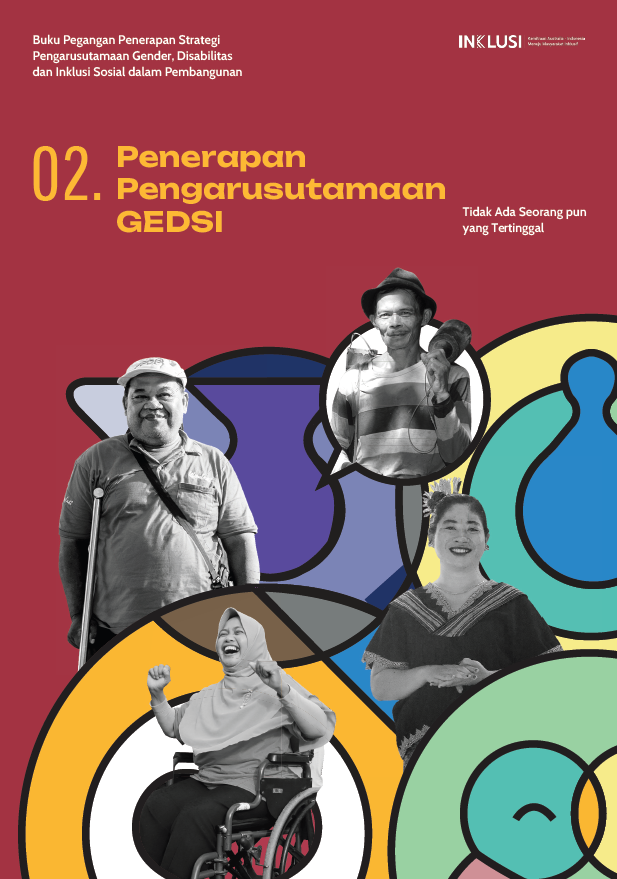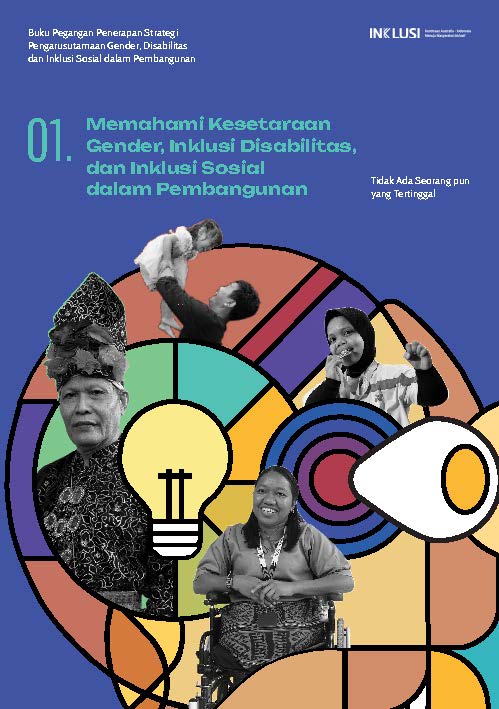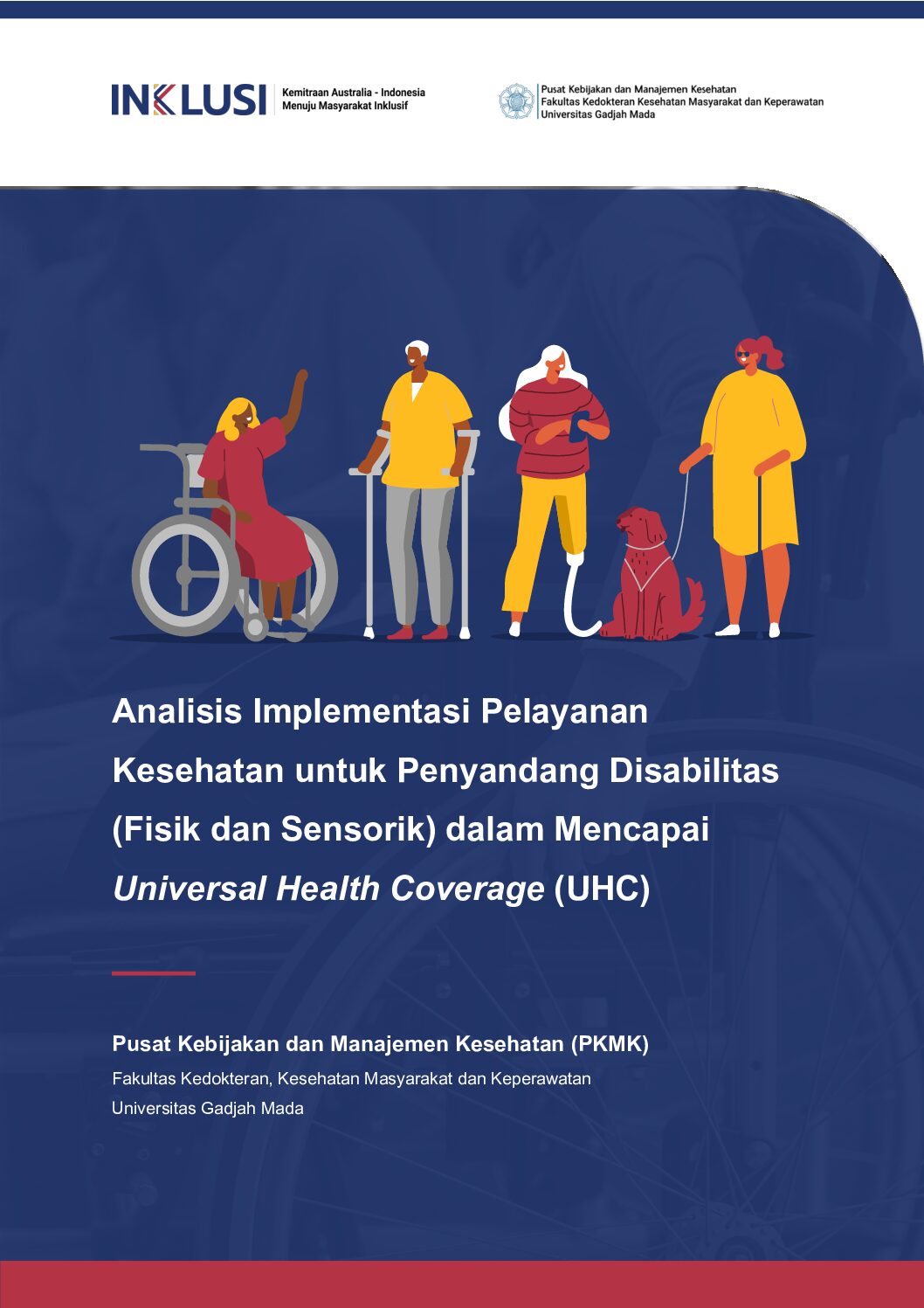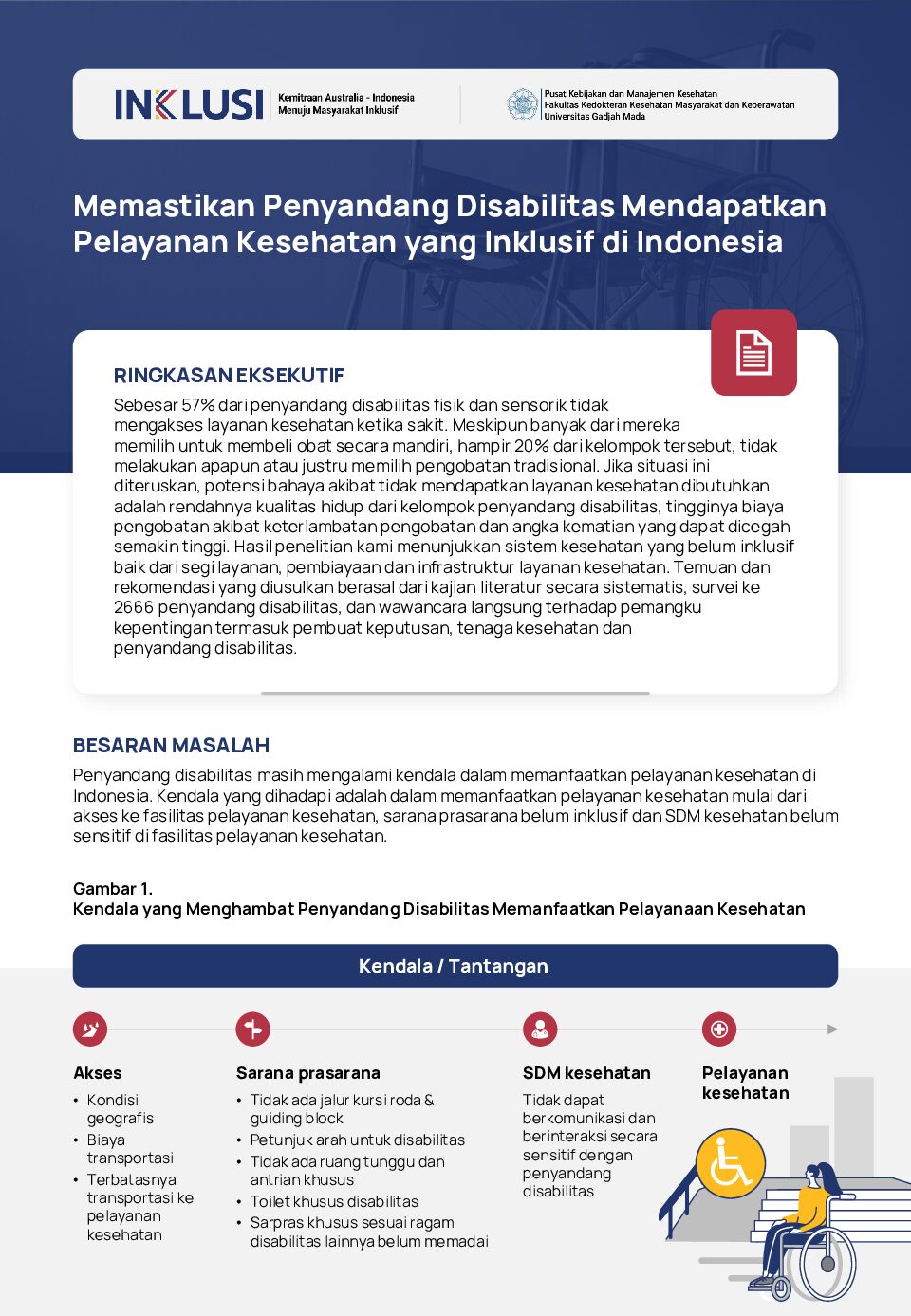Handbook on Implementing Gender, Disability, and Social Inclusion (GEDSI) Mainstreaming Strategies in Development (Books 1-3)
The GEDSI Handbook 1-3 has been developed to meet the need for a comprehensive guide to strengthen the implementation of gender equality, disability, and social inclusion (GEDSI) mainstreaming. It is designed specifically for INKLUSI partners, the INKLUSI Secretariat, and other stakeholders involved in the program, tailored to their respective needs.
The handbook is intended to serve the following purposes:
A One-Stop Reference:
Providing foundational concepts, definitions, Indonesia’s commitments, as well as national and international policy and legal frameworks for achieving GEDSI. It also includes strategies, approaches, analytical tools, and practical steps for GEDSI mainstreaming, covering design, planning and budgeting, implementation, monitoring, and evaluation.
Awareness Raising and Understanding:
Enhancing awareness and understanding of the importance of GEDSI mainstreaming to ensure no one is left behind in creating an inclusive society and achieving sustainable development goals.
Human Resource Capacity Development:
Supporting the development of human resource capacity to implement GEDSI-responsive policies, programs, budgets, and activities.
Organisational Strengthening:
Improving organisational systems, capacity, and governance through GEDSI-based approaches. This includes fostering continuous learning processes that respect the rights and dignity of all individuals, grounded in human rights principles.
Commitment and Accountability Strengthening:
Reinforcing the commitment and accountability of INKLUSI partners and other relevant stakeholders to gender equality, disability inclusion, and social inclusion, in line with their respective roles and responsibilities.
Sustainability:
Supporting the achievement of fair, equal, inclusive, and sustainable development outcomes for all.
